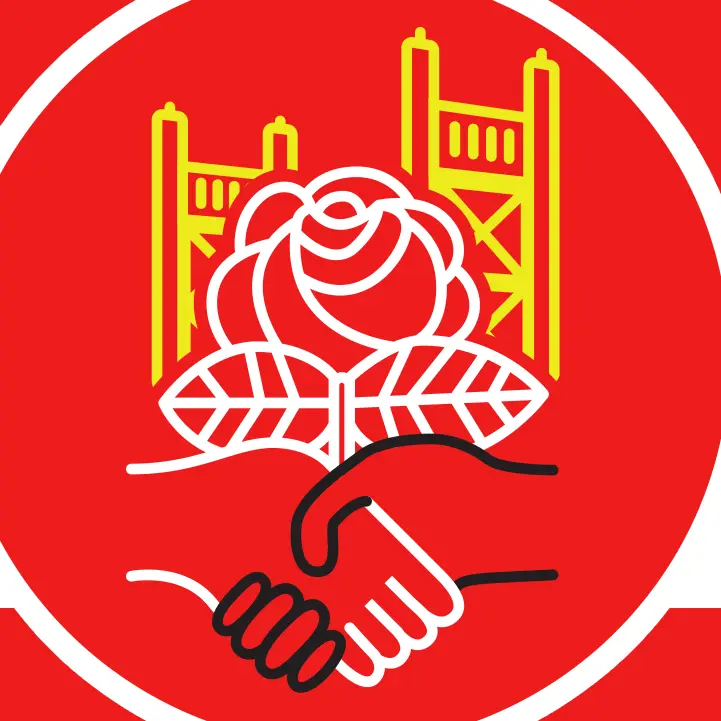

Procedural Overhead: On An Upcoming Debate at Sacramento DSA Local Convention 2023
For reference, see the 2023 SacDSA Local Convention packet - https://docs.google.com/document/d/1DWZuXSlkLUfKhENPAq6e9DwhCfBt2w__JJxkl2seF1E/edit?usp=sharing
By Benjamin Arriaga
My friend and comrade Jimbo Jackson, and fellow Socialist Majority caucus affiliate, submitted three proposed bylaw amendments for the upcoming local convention. Although my comrade and I affiliate with the same national caucus in DSA, I write this to share my disagreement with his proposals for our local chapter. However, I do make an exception of what I would like to see amended at least in his third bylaw amendment, as detailed below. In the interest of transparency: at this time, we are both expected to step in as Convention Chair and Convention Parliamentarian. I have taken steps to enlist other comrades and receive assurances from them that they will accept these roles when his proposals and my proposals reach the floor. I spoke directly with Comrade Jackson about my position on his proposals and that I would be submitting my position statement for publication with a copy provided to him before its online publication. This autumn season I also began my first annual term as a State Council Delegate to California DSA for our chapter. (FYI: We are allotted four delegates and our chapter has yet to hold an election for the fourth seat.)
First, a word about our process: According to our chapter bylaws, our chapter’s membership is required to hold a local convention annually. Despite the fact that we technically have the ability per these same bylaws to amend the bylaws at any of our general membership meetings, I think that specifically holding an annual local convention encourages us to highlight for this type of meeting a chance to address long-term timescale questions. In comparison with a labor union federation it can serve the same function as a “leadership summit” or in a capitalist enterprise, the “company retreat.” In other words, this type of meeting is intended for asking questions about our structure, our capacity, our strategy, and ultimately for affirming our vision as a democratic socialist organization.
On Comrade Jackson’s Bylaw Amendment #1: Pertaining to CA-DSA delegate role, I urge to vote Nay. I plan to vote Nay due to my observation that this would confine the imagination necessary for nonsectarian representative democracy as a principle in our organization. Allowing for our elected delegates (myself included) to exercise initiative, to communicate well with others, or to find ways to collaborate is naturally an extension of the basic practice of representative democracy. We elect a person to do things. If we don’t like what they are doing, then we let them know, and if they don’t compromise, then we choose someone else by majority rule. Additionally, the original language would also confine the expression of dissenting opinions and the “pledge not to act unilaterally” is so broad as that it might discourage our delegation from adding to the discussion or the work of building the very new California DSA State Council without seeking endless, additional approval. Effective, nonsectarian, representative democracy does not require stipulated language of this type.
By contrast, I urge to vote Yay on the California DSA Delegate Term Activity Resolution I authored and submitted. I agree with Comrade Jackson that California DSA would indeed benefit from collaboration but I argue that this does not need to be stipulated through a bylaw amendment. Instead, my resolution would prompt myself and my fellow State Council Delegates from our chapter to use our heads and take lead on action items to help create a political program for our communities and lead by example at California DSA State Council.
On Comrade Jackson’s Bylaw Amendment #2: Pertaining to political priorities of the local chapter, I also urge to vote Nay. Although one or more of the concerns motivating this amendment are valid, such as “a need to improve communication and coordination as a chapter,” I do not think restricting ourselves through our bylaws to a specific number of priorities would actually improve our chapter’s operations. We cannot legislate or formally deliberate a shortcut around the work of organizing.
The question of our priorities is an organizing question, just as much as it is also a political one that faces every member regardless of holding an official leadership role. It requires setting aside ample time to meet and discuss and develop plans with other comrades to choose what we shall focus on achieving and by when. To assist with that effort, which involves political education, I submitted the Standard Spoken Introductions Resolution to emphasize a new general practice. We may call this a form of popular discipline, perhaps, for our members to take up if they agree with me about its necessity. I think when we practice saying a consistent hard brief pitch of what democratic socialism means, popularizing that kind of message discipline internally can take us on a path to resolve ourselves to be consistent in our messaging overall and the criteria by which we adopt future priorities that can matter to our communities.
Finally, regarding Comrade Jackson’s Bylaw Amendment #3: Pertaining to clarifying committee operations and the organizer role, I urge that someone move to amend its original language when it is on the floor. My recommendation may be best laid out in the following points: • Strike out all language that raises the needed participation threshold to 5 dues-paying members to form a committee and keep our status quo requirement of 3. • Strike out all proposed changes to the Committee Operations subsection of our bylaws. • Accept the proposed change to the Organizer subsection that strikes out the stanza with the “ultimate responsibility” and “liaison” clauses. • Accept the proposed addition of a Committee Membership subsection (while changing to 3 signatories instead of 5 signatories). • Insert after the sentence starting with “Only SacDSA members in good standing” and ending with “committee members,” the following language: • “Committee meeting attendees who are not SacDSA members may call themselves fellow-travelers so long as a member or members in good standing sponsors or takes lead in helping them learn about DSA and assume(s) a responsibility to the chapter for their fellow-traveler’s actions when participating in public-facing political activity.”
At any future general membership meeting, we can make two motions: any dues-paying member could move to introduce a bylaw amendment to expand our Steering Committee to include our Committee Chairs; any dues-paying member can also move to dismantle a committee that the majority agrees with dismantling, howsoever it may be justified during any debate if and only after someone seconds that motion.
I grant that Comrade Jackson is well-intended with his proposals. This does not change my worry that his proposals seem like attempts to reshape our structure to more strictly mimic a democratic centralist model. Democratic centralism, in simple terms, involves a periphery that reports to a center and a center that is elected from a periphery, etc., but that tends to fix and concentrate authority at the center once questions of debate are considered settled. This model has gained a nostalgic following in some groupings outside of DSA but also within whole national caucuses in DSA. Their various attempts to transform our organization, especially now, may exacerbate current trends of “procedural overhead” or “second-job professionalism.” These can burn people out. Nonetheless, the renewed appeal of democratic centralism across different caucuses and chapters in DSA may be a result of real frustration with where DSA is at now. The actual problem of internal organizing deserves its own theorization as well as the construction of an alternative for this historic moment.
The need for this theorization demands collaboration with other comrades to continue this conversation with Sacramento DSA in mind as our material, organizational anchor.

Working Together to Repeal 'Right to Work' Law in Arizona
Tonight, we’re traveling to Arizona to learn from socialist organizers who are fighting on their home turf to make forming and maintaining strong unions easier for workers. We’re joined live by Bobby and Kaland of Arizona Works Together and Phoenix DSA to hear about their campaign to repeal so-called “Right to Work” laws in their state and what it means for union organizers in Arizona and nationwide. Plus, it’s ladies’ night once again here on RPM with Amy and Lee as hosts, so we’ll spend some time discussing why unions are great for women and feminists.
More info at: https://www.azworkstogether.com/
and in Spanish at https://aztrabajajuntos.com/


Grillidarity!
Join us this Sunday, October 29 3pm at the Labor Temple for some grilling, chilling, and organizing! We will be discussing how to mobilize and organize, and what’s the difference. Afterwards we will be grilling, and have some good ole Socialist Socialization! Workshop starts at 3 and cookout afterwards.
Grillidarity art is by local artist Gavin Herzog.


Border country: migrant solidarity in New York City
Revolutions Per Minute explores migrant solidarity efforts in Brooklyn, exploring the broader context of the global migration crisis as Israel continues its military offensive against Gaza. RPM interviews people who have recently arrived in New York from Mauritania, and we meet Jaz Walker from Assemblymember Emily Gallagher's office.


Act Now To Save Stop Ethnic Cleansing and Possible Genocide
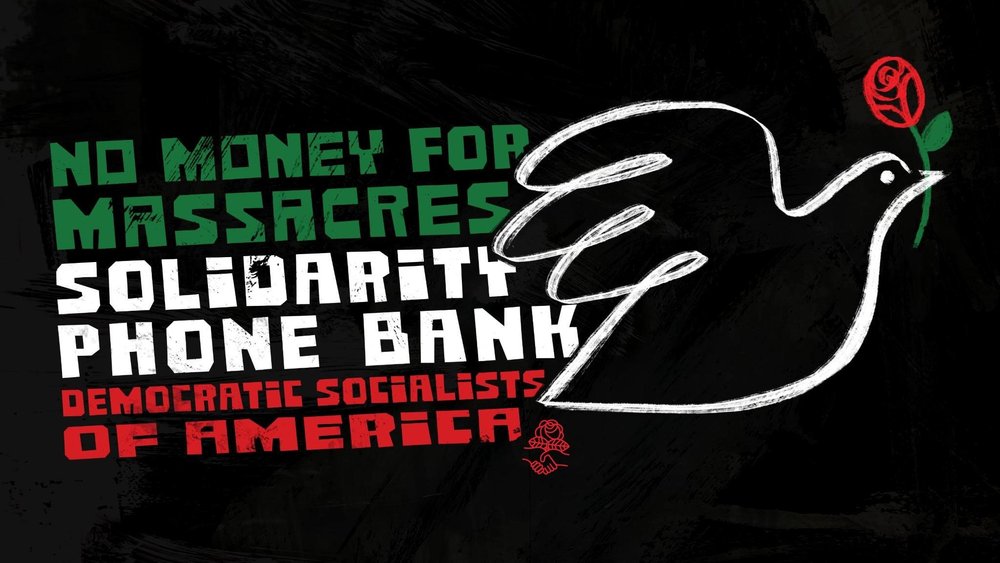
As Twin Ports DSA endorsed City Councilor Azrin Awal noted in her statement on October 16, Duluth is about the same length as the Gaza Strip. But Gaza has a population of 2 million people, compared to our 85,000. Israel has already dropped over 6000 bombs on Gaza during the past week, and an invasion is in the works. DSA has launched a No Money For Massacres phone bank campaign. Sign up to participate here.
Below is Councilor Awal’s statement in full.
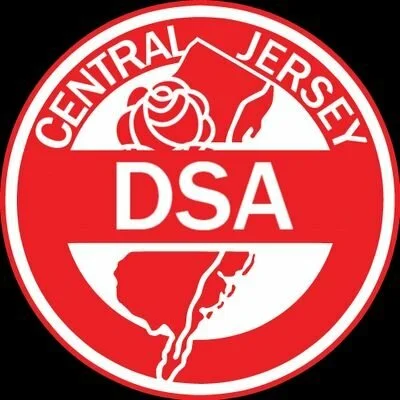

From the River to the Sea!
After the events of October 7th, 2023, the Israeli occupying force wasted little time in launching an indiscriminate bombing campaign against the 2.1 million Palestinian civilians in Gaza as a collective punishment, targeting ambulances1, apartments, schools, mosques, hospitals, and media outlets, turning the existing blockade into an active and deadly siege. Israel has cut off all water, power, fuel, and food supply to Gaza, a further crime against humanity, and the specter of starvation and genocide looms. Telegraphing further escalation, Israeli defense minister Yoav Gallant ordered a complete siege on the Gaza Strip2; only a day earlier, Israeli Prime Minister Benjamin Netanyahu warned Palestinian civilians in Gaza to “leave now.”3 Leave to go where exactly?
At the time of this writing, thousands of people have already been killed inside and near the Gaza Strip. International law is clear on the legitimacy of occupied peoples to liberate themselves from “colonial domination, apartheid, and foreign occupation by all available means, including armed struggle.”4 International law is also clear on the prohibition of punishing a civilian for an offense he or she has not personally committed and the prohibition of reprisals against protected persons and their property.5 But since the beginning of 2023, the Israeli police, military, and armed settlers have killed, on average, one Palestinian a day. Since Israel imposed the blockade on the Gaza Strip, the occupying force has bombed Gaza a total of seven times: 2008, 2012, 2014, 2018, 2021, 2022, and 2023 — and Palestinians have never been able to leave for safety.
However, Netanyahu’s faux-humanitarian warning to Palestinians, “leave now,” touches the roots of the “Israeli-Palestinian conflict.” In 1948, Zionist paramilitary groups ethnically cleansed over 750,000 Palestinians from historic Palestine and established the state of Israel, a historic event known as al-Nakba in Palestinian collective memory6. It is the reason why nearly 67% of Palestinians in Gaza are descendants of families that were ethnically cleansed from the villages where Israeli kibbutzim and cities stand today. It is the reason why Israel is a military garrison state that maintains an apartheid system today, where Palestinians are harassed, robbed, and murdered by Israeli soldiers and settlers every day, from the Jordan River to the Mediterranean Sea.7 It is the reason why, despite Zionist attempts to deny their existence, Palestinians have continued to resist, persevere, and yearn for Return.
Now is not the time for supposedly balanced, measured statements that obfuscate the truth of the conflict. The failure of international bodies and leaders to hold Israel accountable to international law and to apply UN Resolution 194, the right of Palestinians to return to their ancestral homes, has resulted in what we are now bearing witness to. This has been the status quo for Palestinians for 75 years, and it must end.
Israel is able to maintain this barbaric status quo because of the diplomatic, military, and financial support of the United States since 1967. The United States uses this alliance to project its military power into the Middle East, as it seeks to do in all geostrategically important areas of the globe.
As American socialists, we understand the fight for socialism is international, and we understand the unique role the United States plays in administering a global capitalist empire. To assist Palestinians in their struggle for self-determination, our primary role is to pressure the US for a change in its foreign policy. To this end, we unequivocally support the BDS movement and call on American civil society to join the targeted boycott of Israeli goods, companies, and institutions.
The response of the Biden administration to these events still unfolding has been to supply Israel with more money and weapons.8 9The United States must end its policy of arming the apartheid, settler-colonial ethnostate of Israel. We fully condemn the capitalist Republican and Democratic parties, who are largely culpable for the continuation of violence and dispossession perpetrated upon Palestinians. America’s expanding military-industrial complex continues to act as a force of destabilization and oppression throughout the world, and major arms and military technology manufacturers like Raytheon make billions of dollars in profits from exploitation and war.
As socialists living in the heart of a global capitalist empire, we stand in opposition to the imperialism of the American ruling class, and we stand in solidarity with all oppressed people.
Palestine will be free — from the river to the sea.
In solidarity,
Central New Jersey DSA
-
https://www.businessinsider.com/doctors-without-borders-hospitals-ambulances-targets-israel-hamas-gaza-2023-10
 ︎
︎
- https://www.aljazeera.com/program/newsfeed/2023/10/9/israeli-defence-minister-orders-complete-siege-on-gaza
 ︎
︎
-
https://gulfnews.com/world/mena/israel-palestine-conflict-more-than-530-killed-after-hamas-launched-unprecedented-attack-on-israel-netanyahu-retaliates-declares-war-1.1696670798153
 ︎
︎
-
https://www.un.org/unispal/document/auto-insert-184195/
 ︎
︎
-
https://ihl-databases.icrc.org/en/ihl-treaties/gciv-1949/article-33
 ︎
︎
-
https://www.simonandschuster.com/books/The-Ethnic-Cleansing-of-Palestine/Ilan-Pappe/9781851685554
 ︎
︎
-
https://jacobin.com/2023/10/west-bank-apartheid-israel-idf-oslo-accords
 ︎
︎
-
https://themessenger.com/politics/biden-administration-discussing-military-aid-package-to-israel-after-hamas-attack
 ︎
︎
-
https://www.bbc.com/news/world-us-canada-67049196
 ︎
︎
The post From the River to the Sea! appeared first on Central NJ DSA.


Denver DSA stands with Palestine
Denver DSA unequivocally stands in solidarity with the people of Palestine in their fight for liberation from the apartheid regime of Israel. Palestinians have endured 75 years of dispossession, colonization, desecration, torture, and confinement at the hands of the Israeli government, enabled financially, politically, and culturally by the United States. The path to liberation must include ceasing all U.S. aid to Israel, lifting the blockade of Gaza, ending Zionist settler-colonialism, and ensuring the right for Palestinians to return to their homeland.
Yesterday, a wealthy and well-funded nuclear power with the financial, political, and cultural support of the United States began forcibly evacuating 1.1 million civilians from Gaza City during an ongoing indiscriminate carpet-bombing campaign which has already killed thousands of civilians, injured tens of thousands, and displaced hundreds of thousands. Israel has cut off food, water, fuel, electricity, and medical care from Gaza’s 2.3 million citizens, half of whom are children. These civilians have been deemed “human animals” by the Israeli Defense Minister overseeing these attacks, who committed to “treat them accordingly” – an open declaration of genocide. Yet even now, the American war machine readies itself to ship more weapons and send more military funding to support Israel’s extermination of the Palestinian people for daring to resist their brutal, unlivable conditions.
Border walls, military checkpoints, crippling sanctions, restricted water and electricity, food scarcity, impoverishment, denial of medical care, and routine bombings are the material conditions that Palestinians have been forced to live under for over 75 years. Backed by the US, the Israeli Occupation Forces (IOF) brutally murder Palestinians with impunity, over 8,000 since 2000 and thousands since October 7. The IOF detains 600 Palestinian children every year and keeps over 5,000 Palestinians imprisoned, a quarter of whom are held without charges or trial. For 16 years, Gaza has been transformed into an open-air prison, wherein the IOF concentrates 2.3 million people in an area smaller than Denver and bombs them in politically-motivated campaigns they sadistically term “mowing the grass.”
Bloodshed is a universal tragedy. But under apartheid and occupation, some lives are deemed more precious than others. The negative blowback of apartheid should come as no shock; people who are oppressed will perpetually seek ways to free themselves from that oppression. The murder of Palestinians has been a systemically invisibilized occurrence for decades. When Palestinians quietly suffer the daily violence inflicted on them, the West calls that “peace”. Denver DSA recognizes that the only true and lasting peace must be predicated on liberation from occupation, and it is towards that goal that we resolve ourselves today.
We call on all DSA members and endorsed DSA electeds to stand unequivocally in support of Palestinian people’s right to resist. We encourage all DSA chapters to stand with the people of Palestine and organize turn-out to local demonstrations.
May Palestine be free, from the river to the sea.


Statement In Support Of Palestinian Liberation
In the face of over 75 years of settler-colonial violence and genocide, the will and spirit of the Palestinian resistance burns brighter than ever. The state of Israel has ethnically […]
The post Statement In Support Of Palestinian Liberation appeared first on Houston DSA.
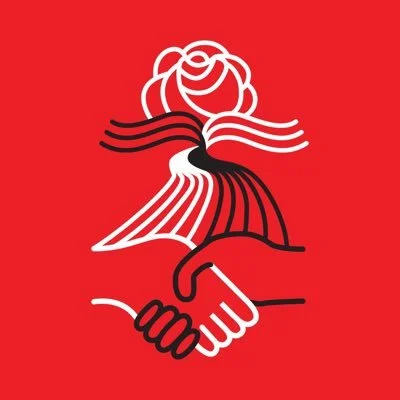

River Valley DSA Condemns the Tax Cuts
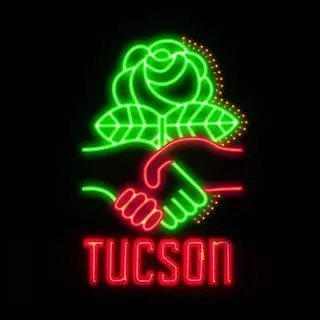

General Meeting - Saturday
|
|
 ︎
︎


